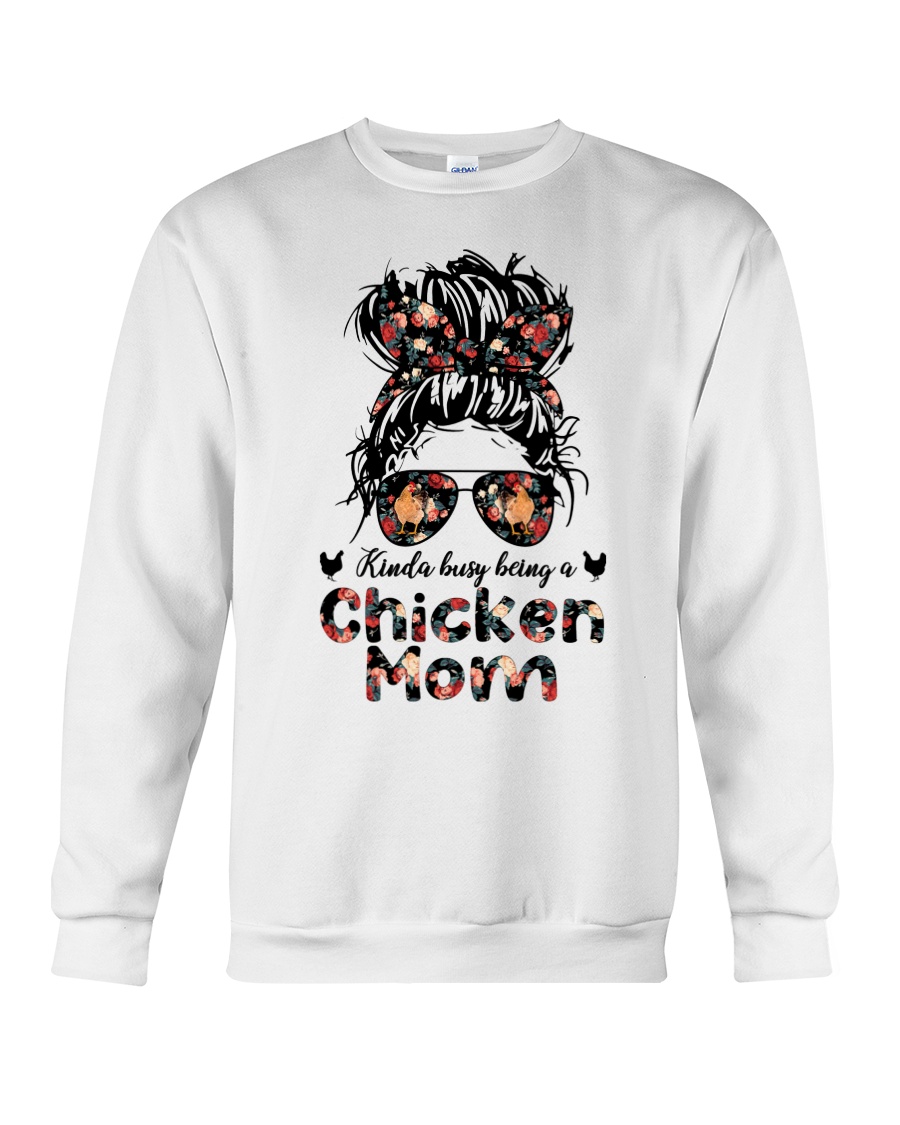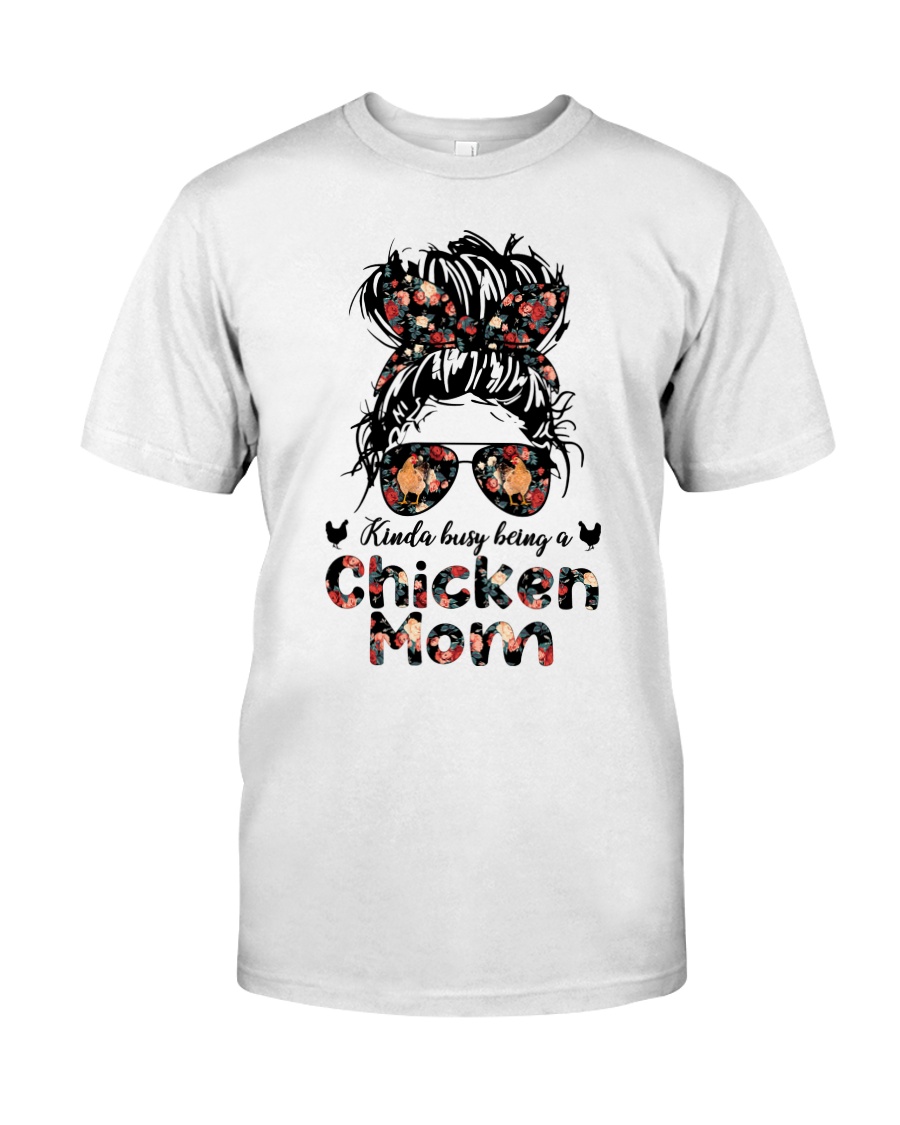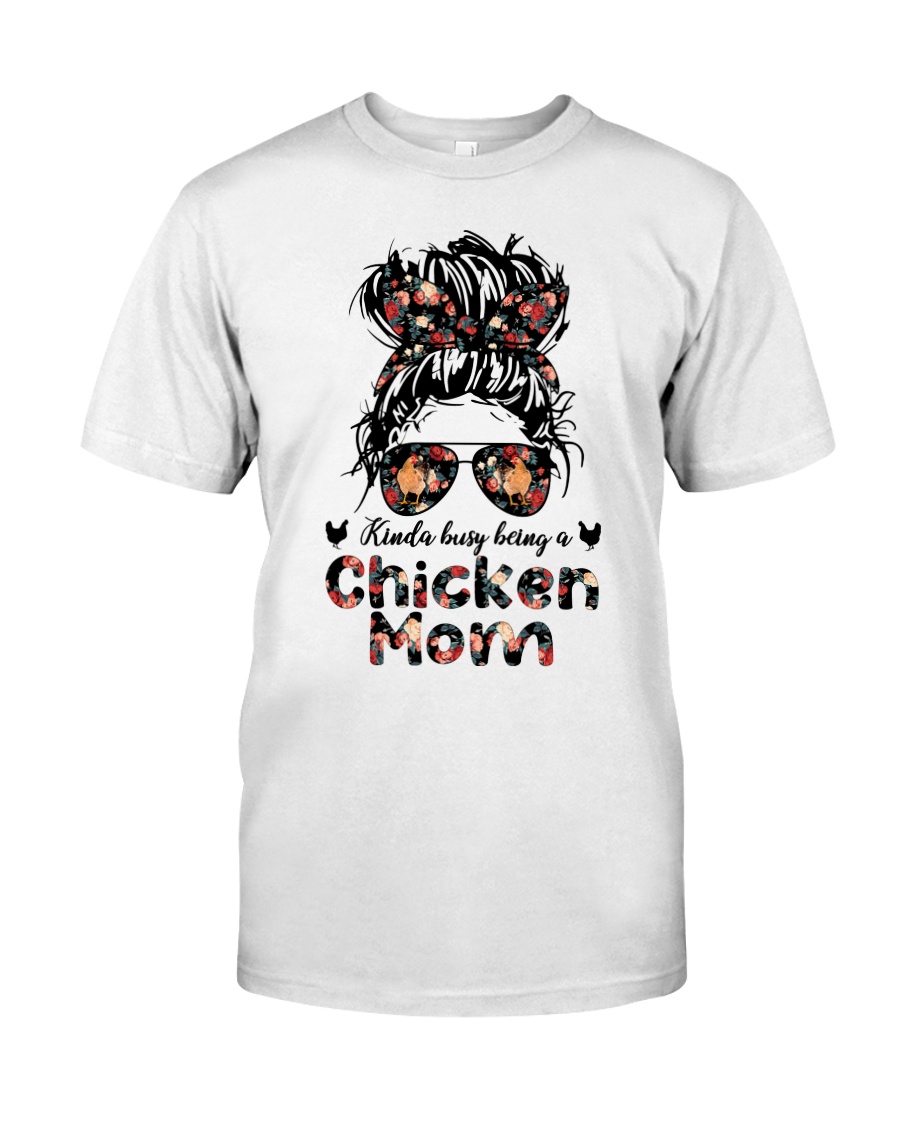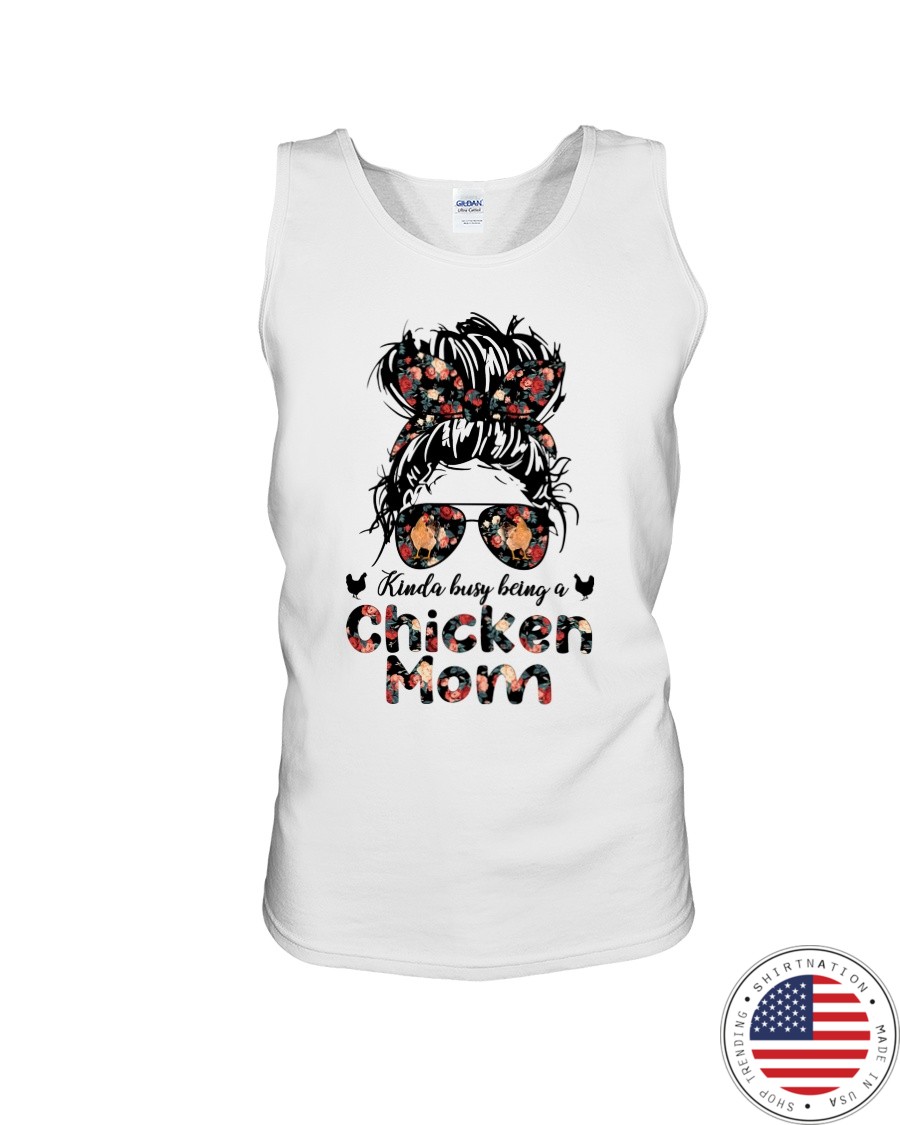Kinda Busy Being A Chicken Mom Shirt
The second habit that led to domestication is the cock’s extreme and unrelenting, even unto death, aggressiveness toward other, unfamiliar males of his species. It is this characteristic that makes the sport of cockfighting so exciting, so bloody, and so freighted with masculine symbolism that it persists, indeed flourishes, in this country today despite decades of attempted legal repression.IT SOON BECAME OBVIOUS THAT COCKS had other habits that caused human males to identify strongly with them. One, certainly, is an apparently insatiable sexual appetite that makes them paragons of virility and sexual ardor. It is no coincidence whatever that the word that denotes the male of the species Gallus gallus is also, in language after language, a slang expression for the male sex organ. (As you might expect, the word rooster was used as an early-nineteenth-century euphemism, to spare the ears of the suddenly genteelHens, for their part, quickly came to symbolize much that is maternal and feminine. People saw in the tightly structured society of chickens, among the most social of all birds, a mirror of their own species, among the most social of all mammals.Consequently, no domestic animal other than the dog has so many symbolic connotations as the chicken does. The mammoth new Random House Historical Dictionary of American Slang devotes no fewer than six pages to the word chicken and its compounds. Hens, cocks, biddies, chicks , and others take up yet more pages.


Kinda Busy Being A Chicken Mom Shirt
The chicken spread from India toward the West and reached Greece at the time of the Persian Wars (Greeks still call chickens “Persian birds”). By the Roman era it was common throughout Western Europe. The Romans and Greeks thought that chickens were useful as diviners of the future, and Roman military leaders would offer a flock grain before a battle. If the birds devoured it, the auguries were good. If they did not, the general often would avoid battle. During the Punic Wars, one Roman admiral was so annoyed when the chickens, perhaps seasick, refused to eat that he threw them overboard, saying, “If they will not eat, let them drink!” and attacked anyway. He lost badly.Chickens were often carried on shipboard for reasons other than forecasting the outcome of battles, for by Roman times chickens and their eggs had come to be used for food. They made excellent shipboard livestock. They took up little space, would eat nearly anything, and provided both fresh meat and eggs to people who otherwise had to subsist on ship’s biscuits and salted meat.It is no wonder, then, that chickens arrived in the New World at very nearly the same time as Europeans. By 1609, only two years after its founding, Jamestown, Virginia, had as many as five hundred. The terrible famine in the winter of 1609-10 reduced that population to zero, or very nearly so. But once the colony was restocked from the West Indies the following spring, the chicken’s place in North America was secure.


























